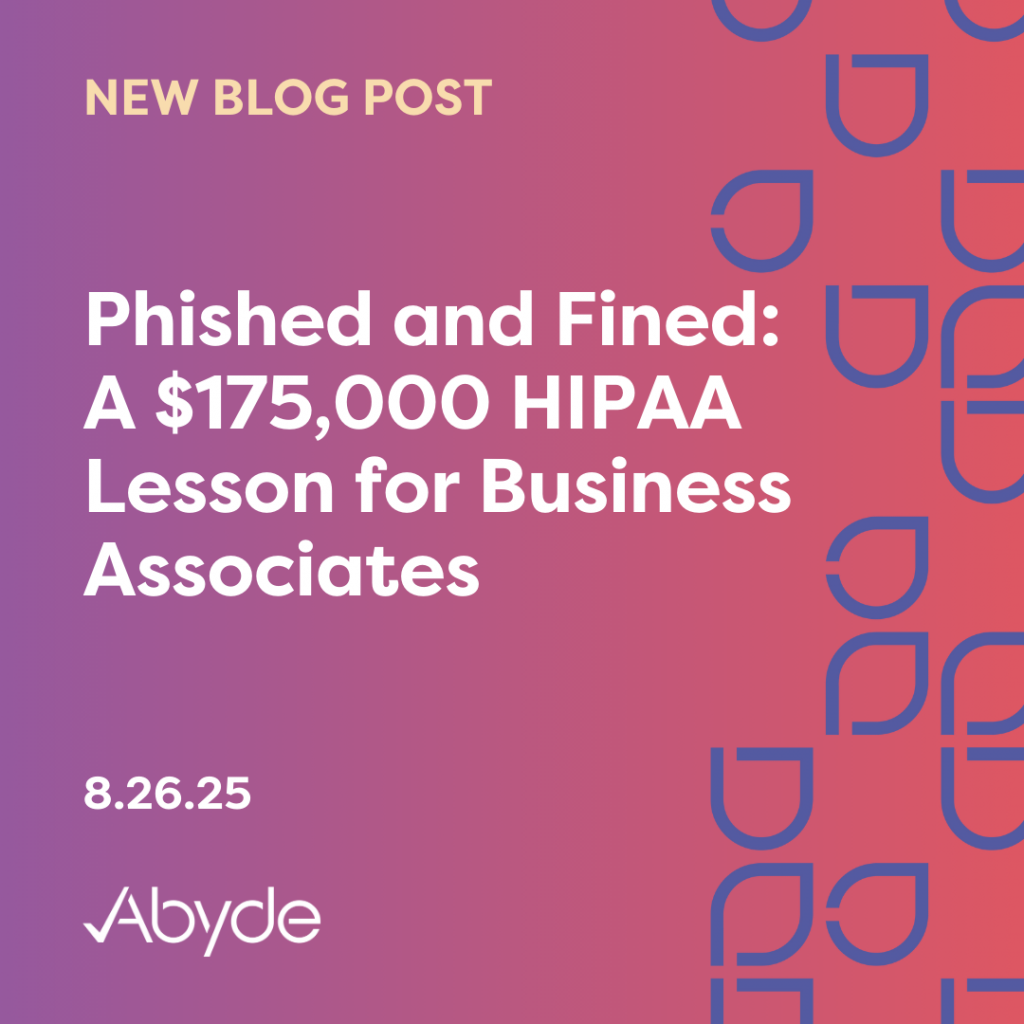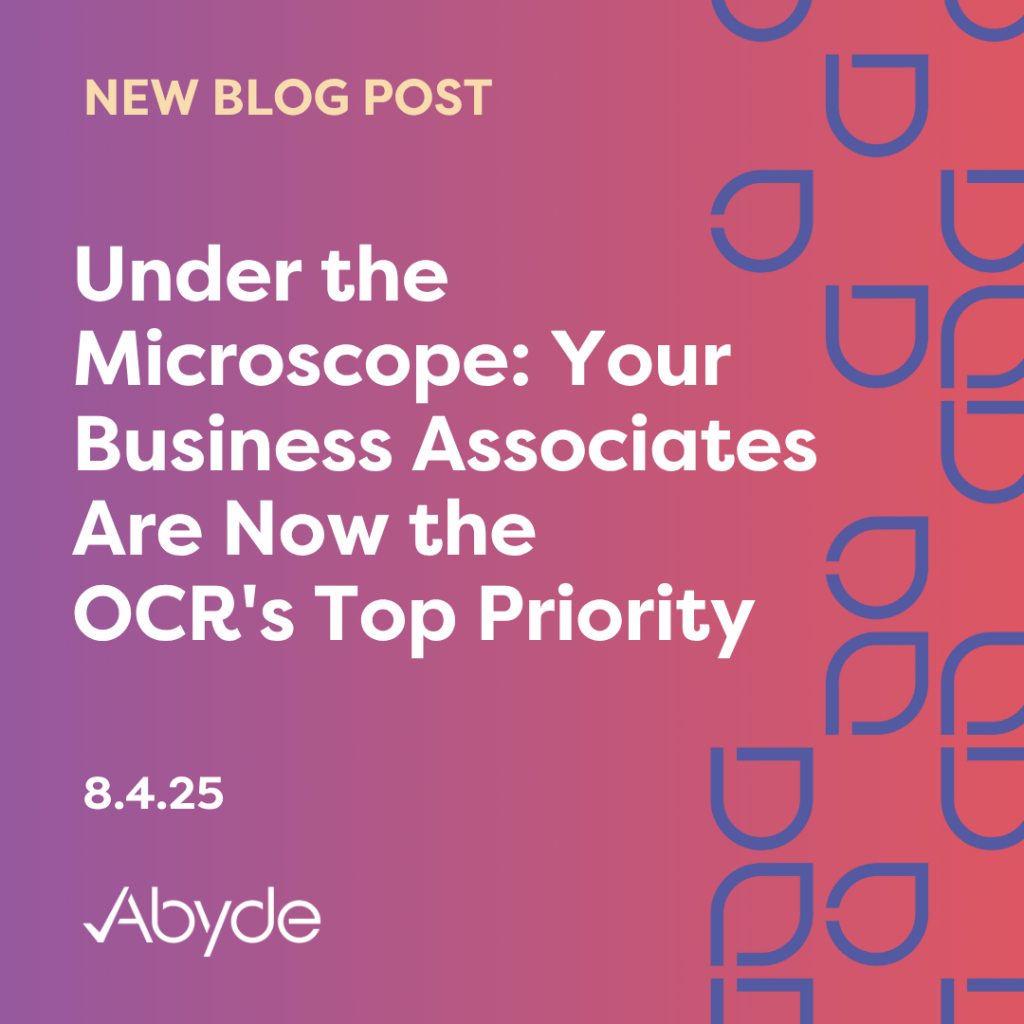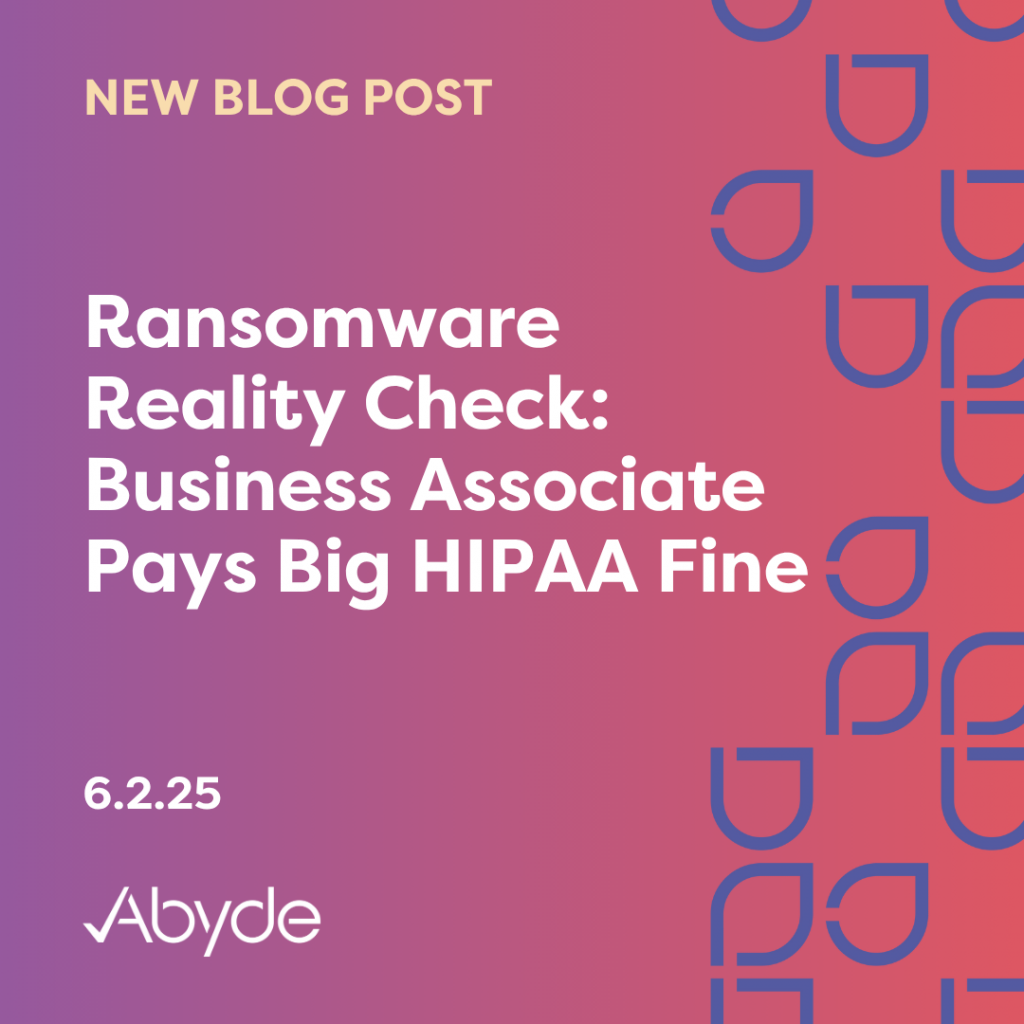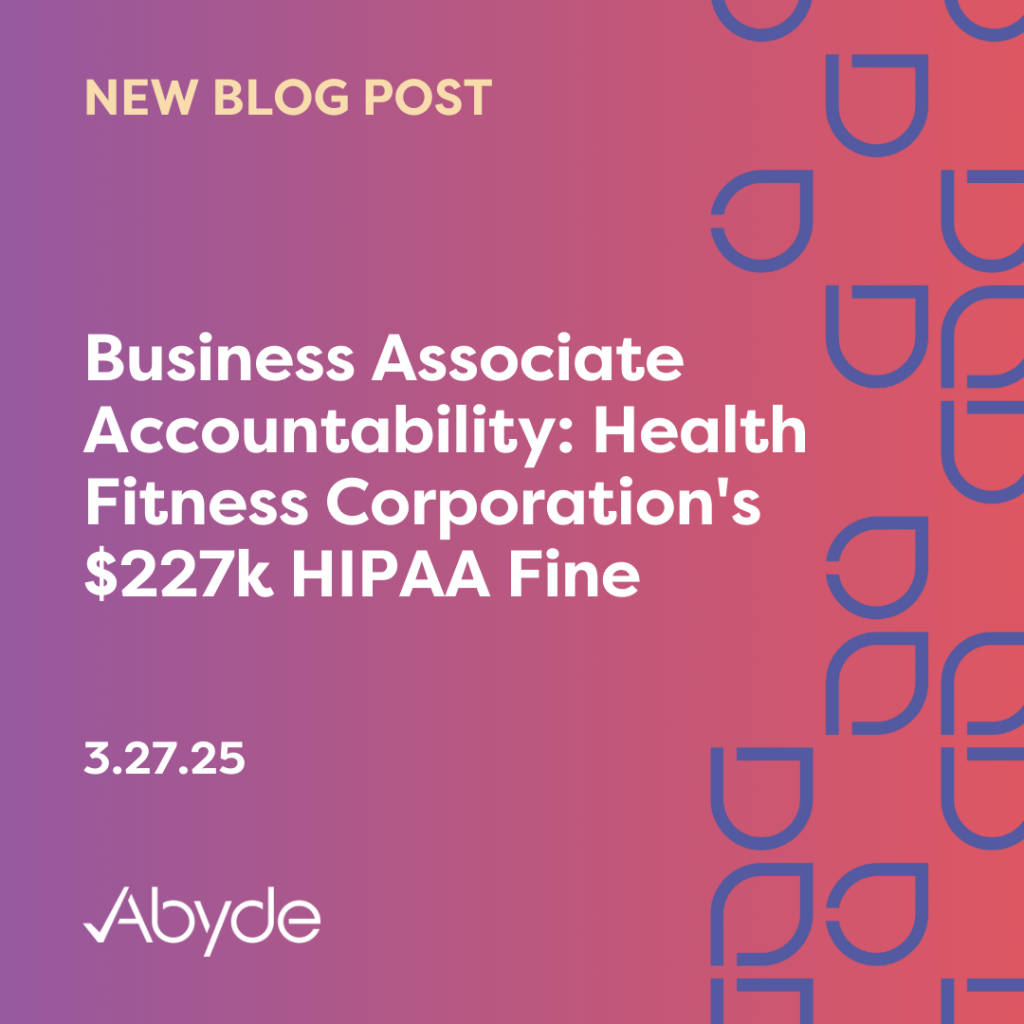August 26, 2025 When scrolling through your inbox, letting your guard down is easy. Maybe you click on that email that looks like it’s from your bank without hesitation, or are swayed by the unsolicited message for a random all-expenses-paid trip. Unfortunately, phishing emails are everywhere, and they target the healthcare industry due to the sensitive nature of Protected Health Information (PHI). BST & Co., CPAs, LLP, known as BST, is a victim of phishing scams. The New York accounting and consulting firm, which works with practices, received the latest HIPAA enforcement, with a $175,000 fine and a two-year Corrective Action Plan or close monitoring by the Office for Civil Rights (OCR). The OCR discovered, after the fallout of a phishing email, that the Business Associate (BA) had failed to complete a Security Risk Analysis (SRA). This is the 10th enforcement of the Risk Analysis Initiative since its introduction last year. An SRA is a requirement for all HIPAA-regulated entities to assess all potential vulnerabilities of any physical, technical, or administrative safeguard in their organization. By identifying any concerns before a breach occurs, organizations are able to better safeguard PHI, keeping both their business and patients safe. This fine reminds us that BAs are just as responsible for upholding HIPAA as traditional medical practices and that completing the SRA is paramount. What Happened? On December 4, 2019, malware entered BST’s network after a successful phishing attempt. From December 4 to December 7, 170,000 patients’ PHI was exposed. The OCR began its investigation after BST reported the breach in February 2020. The OCR discovered that BST had not completed a thorough SRA. With a thorough SRA, BST could have seen the vulnerabilities regarding emails, or even how they secured Covered Entities’ PHI, and either prevented this breach or minimized its impact. Compliant Business Associates Keep Patients Safe Even though BST wasn’t treating patients directly, as an accounting and consulting firm they still had access to a Covered Entity’s PHI. That’s a clear reminder of just how important it is to make sure your Business Associates (BAs) are fully compliant. When your BA follows a comprehensive HIPAA compliance program, your practice gains peace of mind and a stronger, more secure partnership. The right solution helps you stay ahead of your BA responsibilities, whether that’s generating and maintaining Business Associate Agreements, providing staff training with practical tips like email safety, or completing a Security Risk Analysis (SRA) to uncover hidden risks. Connect with our team of compliance experts today to learn more.
Under the Microscope: Your Business Associates Are Now the OCR’s Top Priority
August 4, 2025 Let’s talk paperwork. While that might not seem like the most interesting or important thing to focus on when running your practice, having the right documentation is key to its success. A Business Associate Agreement (BAA) is one of the many documents you need to be HIPAA compliant when running a practice. When working with Business Associates (BAs), or the third-party vendors who can access your practice’s Protected Health Information (PHI), you must have a signed agreement in place. These BAs can include anyone from your IT company to the company that handles your shredding. In short, if a business has any access to PHI, it’s required. The Office for Civil Rights (OCR) has put Business Associates (BAs) in the hot seat, with proposed new legislation strengthening their requirements and millions of dollars in fines imposed this year alone. It’s time to take a fresh look at your partnerships, and the best place to start is by having a solid BAA. What does a BAA do? First things first, what does a BAA even do for your practice? What does it include? Well, this required agreement outlines all responsibilities your practice and business partner must follow when handling PHI. The document includes the definition of PHI, when the BA can use the data, and how each party must secure data. This legally binding agreement ensures each party understands the serious nature of handling PHI. Overall, it’s another layer of protection to clearly define your relationship with a BA. A BAA is essential, especially when a Business Associate experiences a data breach. Business Associates are frequent targets for malicious actors. One of the first fines in 2025 was a $90,000 penalty for a ransomware breach that targeted a data hosting company. This breach exposed the PHI of patients from 12 different healthcare practices. These 12 healthcare practices would also need a BAA with the hacked party. If not, the Covered Entity could also be liable for the BA’s missteps. The OCR has also fined Covered Entities for missing a BAA. Here’s a prime example: A healthcare provider was in a nasty dispute with their BA. They even reported the BA to the OCR, claiming the BA was holding PHI hostage for a $50,000 payment. But here’s where it took a turn: The OCR didn’t just investigate the BA; they also focused on the healthcare provider. The result? The OCR slapped the provider with a $100,000 fine for missing crucial documentation, including, you guessed it, a BAA. Keeping BA Partnerships Secure While ensuring documentation is in order is no one’s idea of fun, protecting your practice and keeping patients’ data safe is imperative. With the right solution, your practice can make documentation a piece of cake. While a BAA may not be as appealing as chocolate fudge, software can streamline the process, creating a legally sound and complete document that is just as satisfying. Meet with an expert today to learn more about ensuring compliant vendor relationships.
Ransomware Reality Check: Business Associate Pays Big HIPAA Fine
6/2/2025 Did you know Business Associates (BAs) are at risk for ransomware attacks just as much as Covered Entities? Ransomware attacks disproportionately affect healthcare organizations, with malicious actors looking to exploit Protected Health Information (PHI). When PHI includes sensitive information such as Social Security Numbers, addresses, phone numbers, and more, it provides someone with a lot of information to use for the wrong reasons. A medical billing BA in Massachusetts, Comstar, LLC, recently experienced the fallout of a ransomware attack. Trusted with the PHI of over 70 practices, the organization did not have the proper safeguards to mitigate risk after a cybercrime. Part of this was a missing Security Risk Analysis (SRA), or a thorough assessment of an organization’s potential vulnerabilities. This latest enforcement represents the responsibility of BAs to uphold their commitments and for all HIPAA-regulated entities to complete and maintain an SRA. What Happened? In May 2022, a malicious actor intruded Comstar’s network servers. Comstar was unaware of this intrusion for several days. In the meantime, the hacker encrypted nearly 600,000 patient records with ransomware. Even though these patients weren’t directly Comstar’s, they assumed the responsibility of protecting their data. While it is not public what steps Comstar took to mitigate risks after the initial ransomware breach, it was discovered that the organization did not complete an SRA. This assessment is at the foundation of a compliant practice and is a requirement of HIPAA. After this discovery, the organization was fined $75,000 and put under a Corrective Action Plan (CAP), or government monitoring, for two years. This assessment is at the foundation of a compliant practice and is a requirement of HIPAA. Recently, the Office for Civil Rights (OCR) has sharpened its focus on this commonly missed requirement with the latest Risk Analysis Initiative. This fine is the 9th enforcement of this initiative. Streamlining the SRA with Software When less than 20% of BAs could showcase a compliant SRA when being audited, completing the SRA is unfortunately a common oversight by regulated entities. Additionally, this is a responsibility of both Covered Entities and BAs, and both parties must carefully handle PHI. With smart software, BAs can easily streamline the SRA and complete the assessment that pinpoints common vulnerabilities organizations face. By simplifying the SRA, intelligent solutions can empower an organization to cultivate a culture of compliance for its staff, securely meet requirements, and handle PHI. To learn more about how your organization can easily complete the SRA, meet with a compliance expert today.
Business Associate Accountability: Health Fitness Corporation’s $227k HIPAA Fine
March 27, 2025 With over $3.5 million of fines levied against Business Associates (BAs) so far in 2025, it’s fair to say that the Office for Civil Rights (OCR) is serious about holding them accountable. These fines in 2025 serve as a reminder that BAs play a crucial role in safeguarding Protected Health Information (PHI). The latest BA HIPAA fine was enforced on the Health Fitness Corporation, which offers wellness plans nationwide. After a flurry of breach reports, Health Fitness Corporation found itself in the crosshairs of a HIPAA investigation. This investigation exposed some critical missteps, leading to a $227,816 settlement and a two-year Corrective Action Plan (CAP). At the center of this fine is a missing Security Risk Analysis (SRA). The SRA is a thorough assessment that identifies the organization’s vulnerabilities. This fine was also the fifth enforcement of the Risk Analysis Initiative, a recent program by the OCR to ensure regulated entities complied with this HIPAA requirement. This fine not only spotlights the importance of Business Associates following HIPAA, but also for all regulated entities to be aware of the Security Risk Analysis requirement. What Happened? In August 2015, PHI was exposed online due to a server misconfiguration. This breach was not discovered in June 2018, with an estimated 4,000 patients impacted by this security issue. Four breach reports describing this incident were filed from the end of 2018 into early 2019. This led to the OCR investigating Health Fitness Corporation. It was then uncovered that the organization did not complete a thorough SRA until 2024. The SRA is an annual requirement for every HIPAA-regulated entity. This assessment should also be completed after any breach to review and address vulnerabilities. As a result, the wellness program organization was fined $227,816 with government monitoring for the next two years. How to Protect Your Organization When working with PHI, all involved parties must know their responsibilities. For Covered Entities and Business Associates, having a Business Associate Agreement (BAA) with any third parties with access to PHI is vital. BAAs define each party’s responsibilities, creating legal liability. This required document demonstrates that each party is willing and able to take responsibility for protecting sensitive patient data. In addition to being aware of HIPAA responsibilities, ensure your organization completes an SRA annually, and anytime a breach occurs. Risks can be mitigated by being on top and informed about your organization’s vulnerabilities. Utilizing a smart software solution can streamline these requirements. Smart solutions can streamline the SRA and any BAAs, protecting your organization. To learn more about how you can automate and streamline compliance in your practice, schedule a consultation with an expert today.



